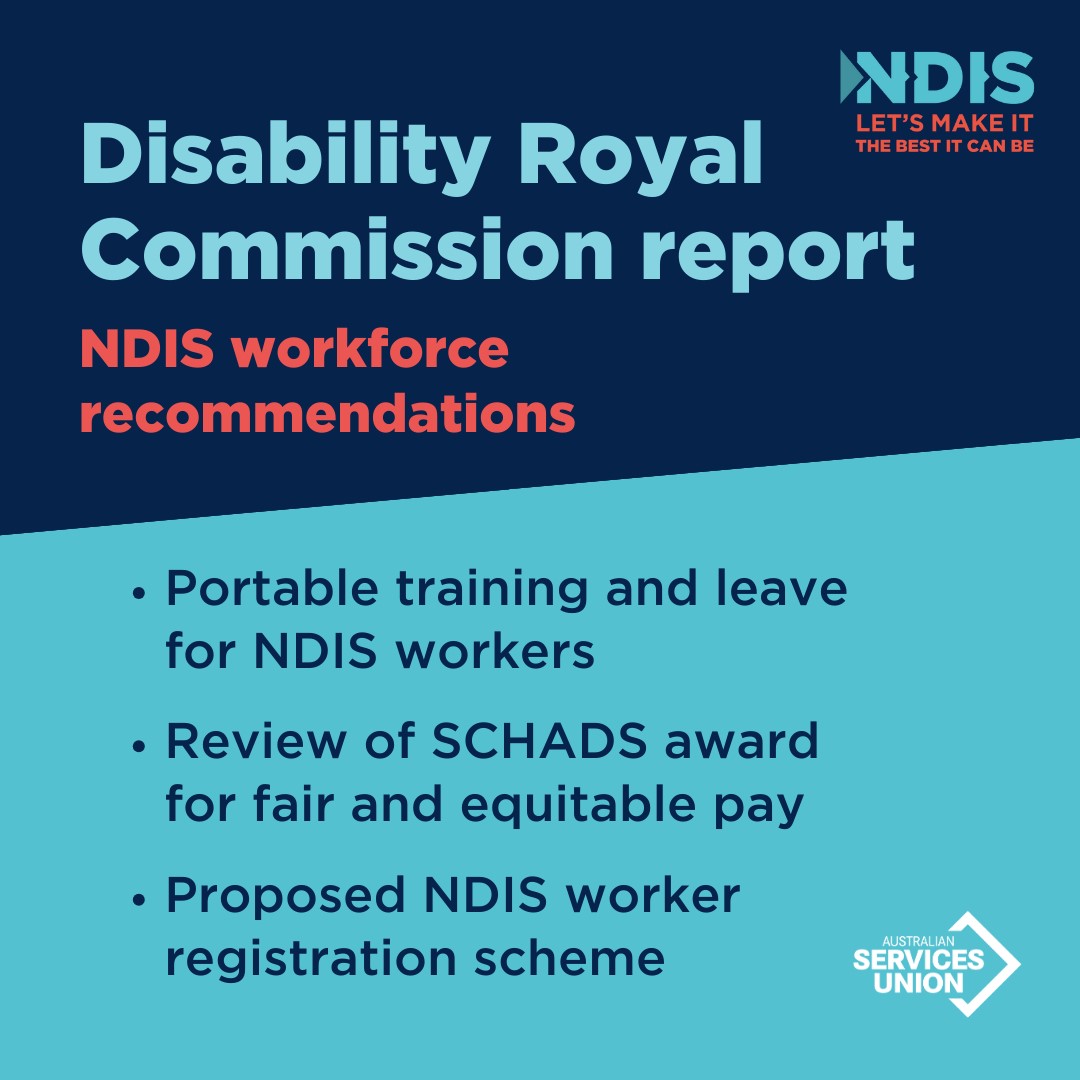 The Australian Services Union has urged all governments to immediately start implementing recommendations from the Disability Royal Commission after it found a direct connection between secure and stable jobs for support workers and quality services for people with disabilities.
The Australian Services Union has urged all governments to immediately start implementing recommendations from the Disability Royal Commission after it found a direct connection between secure and stable jobs for support workers and quality services for people with disabilities.
In delivering its final report, the Royal Commission has supported a range of workforce solutions, including portable training and leave entitlements for disability support workers – one of the major goals of the ASU’s own campaign for a better National Disability Insurance Scheme.
ASU National Secretary Robert Potter said the report had acknowledged that a highly skilled and qualified workforce that was capable of delivering high-quality and individualised services was critical to the success of the system.
“Our members who are NDIS workers provide invaluable support to more than 500,000 people living with a disability but flaws in the system have made it difficult to recruit and retain workers,” Mr Potter said.
“As the evidence from both Australia and internationally shows, the quality of disability services is dependent upon high-quality employment standards, job security, and training, which is particularly important under the NDIS’s individualised model of care.
“For some time now, the ASU has been campaigning for an ongoing portable training scheme enabling disability workers to regularly access training opportunities and build credentials in specialised topics and sub-disciplines over the course of their careers and we are pleased to see the Royal Commission support this call to action.
“An investment such as this will lead to a more highly skilled and engaged workforce, more successful recruitment and retention by service providers, and much higher-quality service provision to people with disabilities.”
Among its 222 recommendations to strengthen the rights and inclusion of people with disabilities, the Royal Commission agreed with the ASU regarding the need for a review of the Social Community, Home Care and Disability Services (SCHADS) Award to close the loopholes where disability support workers are not properly paid for the work they do. It also highlighted the fundamental role of advocacy services in the NDIS.
“Having conducted dozens of public hearings and examined more than 800 witnesses over the past four years, the Royal Commission has unearthed systemic failures and human rights violations – many of them inexcusable,” Mr Potter said.
“As a result, the Royal Commission has rightly recommended better access to advocacy services for all people with a disability and for that advocacy support to be part of all NDIS plans for people in supported accommodation.
“The ASU is committed to continue to work with people with disability to make sure that all recommendations are implemented by governments, and we are looking forward to the imminent release of the Federal Government’s own review into the NDIS.”

